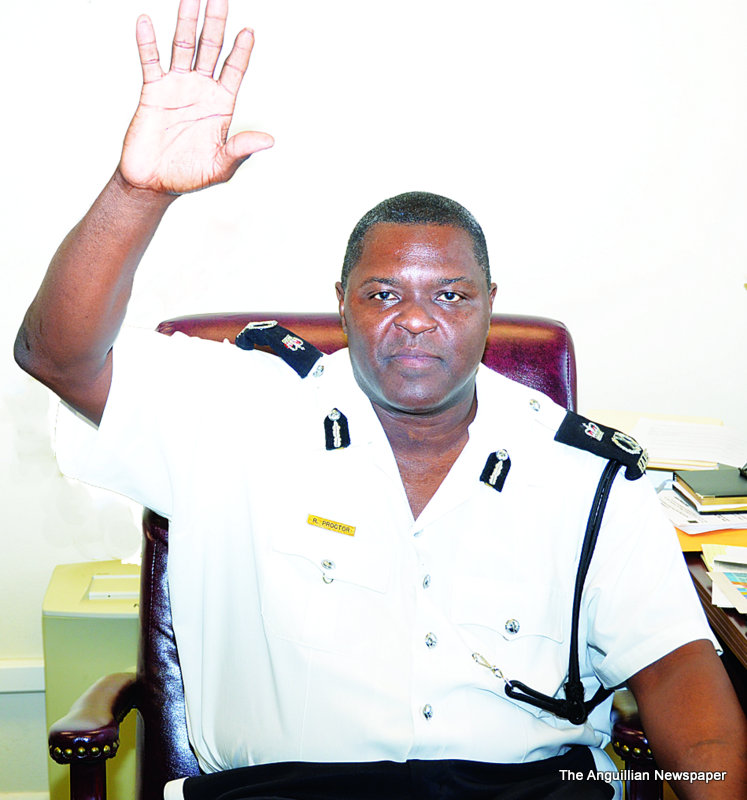In recent years, the Anguilla House of Assembly has suffered ridicule – and has been dismissed as unruly, dishonourable and even undemocratic – as a result of the unfortunate misbehaviour, of the Speaker and some of its members, like street people in a fish market. This should be the last thing to befall a place of honour and leadership to which our aspiring youngsters, in particular, look up to as an institution of exemplary conduct and goodwill in our small but developing society.
There now appears to be an atmosphere of rectitude and respect pervading the new House of Assembly which should be encouraged and kept alive and well. This can only benefit the democratic process and better serve the interests of our people as their business is conducted in a manner to their liking and edification. It may be considered a minute matter, given the practice of late beginnings of the Assembly meetings, but when attention is paid to punctuality as was displayed this week, this in itself becomes something to be both expected and admired. It is a matter that should be enforced by the Speaker and the Sergeant-at-Arms rather than having the anxious listening and viewing public waiting for the live broadcast or those persons in the galleries waiting to witness the proceedings for unnecessary extended periods.
Tolerance is another virtue which should be practiced in the House of Assembly. In the past, it would have been a matter both unheard of and questionable for a member of the House, particularly on the Opposition side, to submit draft legislation on the Order of Business for consideration. Yet, it is something provided for in the Anguilla Constitution and the Rules of Procedure of the Assembly. Certainly, if a member can introduce a Motion, as is regularly done, the same privilege should obtain for someone to take a Bill to the House that has a wide application for the community rather than a personal or otherwise private matter. Such an opportunity was taken for the first time in the history of the Anguilla House of Assembly when the Leader of the Opposition, Palmavon Webster, took three draft domestic Bills to the House on Tuesday this week. The Speaker, along with the membership of the House, simply changed the heading of the Bills from being “Private Member Bills” to “Other Bills”, adopted them and gave them their first reading, like the four preceding Government Bills. This was democracy at work. At the same time, however, the submission of the Bills can be attributed to the fact that Ms. Webster, being a Lawyer, has the capability and resources, unlike other members of the House, unschooled in law and legal drafting, to undertake such a task on their own.
Another matter that gives credence to the responsible functioning of the new House of Assembly is that the Speaker notified members, early o’clock, that he is desirous for them to declare their interests; to look at the functioning of the Public Accounts Committee (which should help to keep the Government on its toes); and the need to enforce timelines as set out in the Rules of Procedure. These are as follows: notice of a meeting of the House (seven days); two clear days for the circulation of the Order of Business; three days’ notice for questions, bills and motions; and two clear days for circulation of bills. These days do not include Saturdays, Sundays or holidays.
A noticeable matter in the House was the seating, by the Speaker, of the newly-appointed and sworn-in Second Nominated Member, Mr. Paul Harrigan. It was arranged for him to sit with the Leader of the Opposition rather than on the Government-side as was previously the case. While the Second Nominated Member is an independent person, his appointment by the Governor, after consultation with the Leader of the Opposition and the Chief Minister, appears to some extent to make his seating on the opposite side of the House a necessary and foregone conclusion. But this is especially desirous now, given the major control of the House by the governing Anguilla United Front. The positioning of the Second Nominated Member certainly presents a practical appearance of balance even though he is required to operate like a pendulum – swinging between the Opposition and the Government – when it is appropriate, to give support to various matters, one way or the other, in the best national interest.
There was also a noticeable increase of attendees in the galleries of the House of Assembly for the sitting. It has been a matter of concern, over the years, that when there were important matters before the House at any given time, there had been the regrettable absence of members of the public to observe the discussions, to be enlightened at firsthand, and to intelligently form their own opinions. There is no real method by which they can be forced to attend the House of Assembly. Our people can, however, be encouraged to do so by the responsible behaviour and statesmanship of members of the House in conducting the business of the citizenry, or by the people’s own diligent volition to fully apprise themselves about what is going on.
At present, the House of Assembly appears to be on the right track to function as a responsible and honourable institution. The Speaker, Chaplain the Sergeant-at-Arms and all of the members, on both sides of the House, must work together to maintain and protect its reputation and to gain the respect and confidence of all and sundry.








